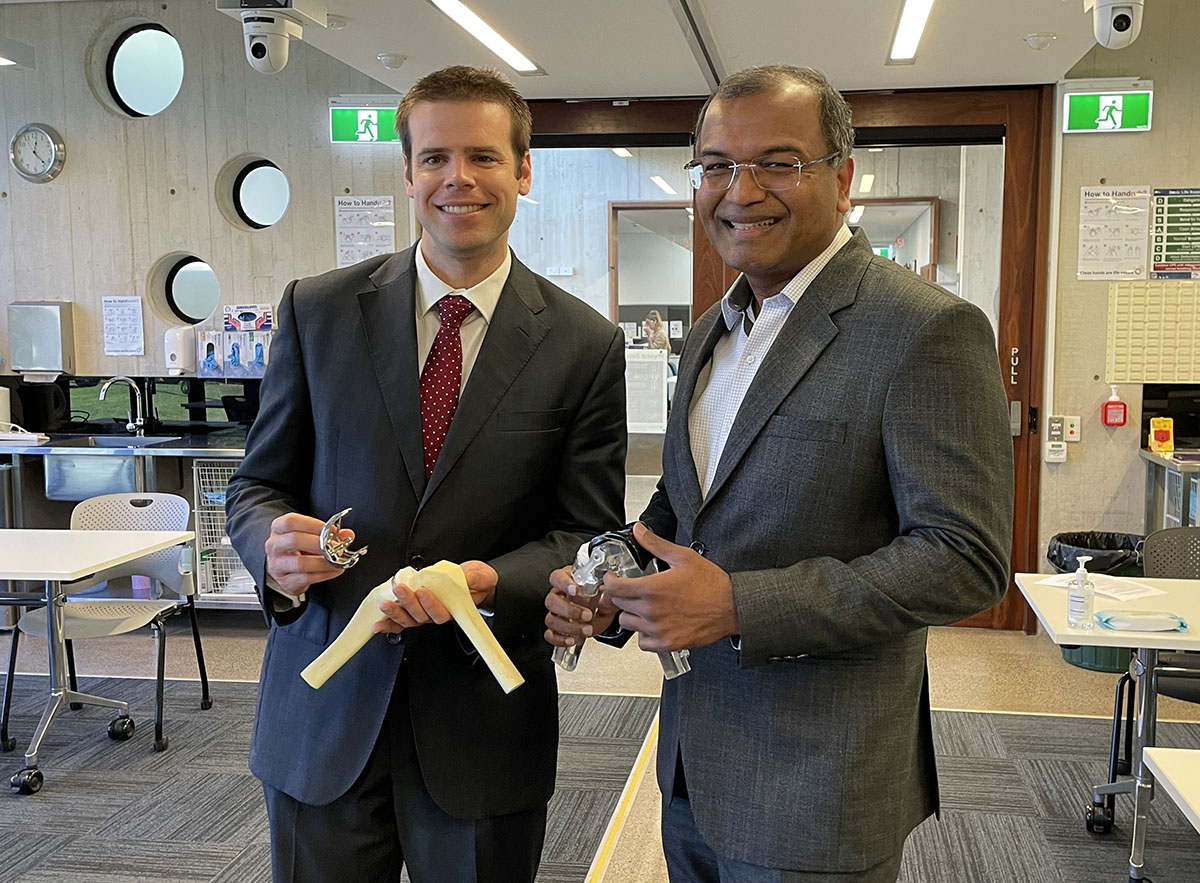More than half of Australians who underwent knee replacement for osteoarthritis were obese, increasing their risk of having the operation at a younger age, especially among women.
A study by The University of Queensland Rural Clinical School (UQRCS) compared data from the Australian Bureau of Statistics’ (ABS) 2017-18 National Health Survey with the Australian Orthopaedic Association National Joint Replacement Registry.
Researchers found that of the 56, 217 patients who underwent a knee replacement for osteoarthritis (OA), 57.7% were obese.
UQRCS Head of Research, Associate Professor Srinivas Kondalsamy-Chennakesavan said the risk of knee replacement for OA was relative to a person’s body mass index (BMI).
“Obese women aged 55–64 years were up to 17.3 times more likely to undergo a knee replacement than their healthy weight counterparts, while obese men in the same age group were up to 5.8 times more likely,” he said.
“Obese patients with the highest BMI ratio were also seven years younger on average when they had a knee replacement, compared to normal weight individuals.”
Around 2.2 million Australians have OA and nearly a-third of adults are obese, according to the ABS.
Lead investigator, Dr Chris Wall said weight loss was an important step to improving outcomes for individuals and Australia’s health system.

“Modest weight loss has been found to effectively reduce knee OA symptoms, and obese patients who maintained a 10% body weight loss experienced significant improvement in pain and function,” Dr Wall said.
“By 2030, it’s expected more than 161 thousand knee replacements will be conducted annually.
“Urgent action is needed at a national level to change our approach towards reducing obesity or Australia may face a growing burden of revision knee replacement in the future.”
This study was conducted in collaboration with Professor Richard de Steiger, Professor Christopher Vertullo, Dr James Stoney, Professor Stephen Graves and Ms Michelle Lorimer.
The paper is published in the ANZ Journal of Surgery (DOI: 10.1111/ans.17689)



